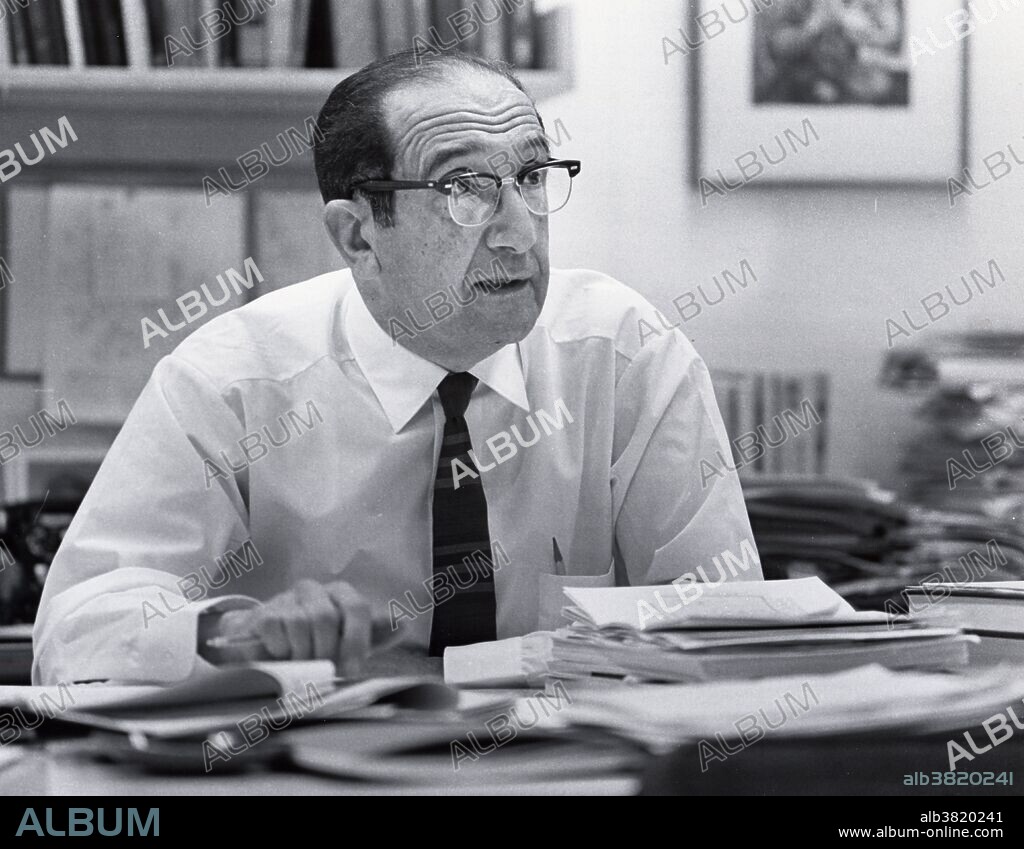alb3820241
Salvador Edward Luria, Nobel Prize 1969

|
Añadir a otro lightbox |
|
Añadir a otro lightbox |



¿Ya tienes cuenta? Iniciar sesión
¿No tienes cuenta? Regístrate
Compra esta imagen.
Selecciona el uso:

Título:
Salvador Edward Luria, Nobel Prize 1969
Descripción:
Ver traducción automática
Salvador Edward Luria (1912-1991) was an Italian-born bacteriologist whose pioneering work on bacterial viruses (bacteriophage) with Max Delbrück demonstrated that bacterial resistance to phage infection occurred through genetic mutation, and that bacteria were suitable subjects for genetics research. He was a founding member of the informal "phage group" of early molecular biologists working on problems of gene structure and function. His subsequent work included discovering the phenomenon of bacterial restriction and modification of phage DNA by means of enzymes, and elucidating the mechanisms by which certain proteins operate within bacterial cell membranes. Later, Luria was the first director of the MIT Center for Cancer Research. He was also well-known for his political activism, especially in protesting the Vietnam War. Luria shared the 1969 Nobel Prize in Physiology or Medicine with Max Delbrück and Alfred Hershey, for their "discoveries concerning the replication mechanism and the genetic structure of viruses."
Crédito:
Album / Science Source / National Library of Medicine
Autorizaciones:
Modelo: No - Propiedad: No
¿Preguntas relacionadas con los derechos?
¿Preguntas relacionadas con los derechos?
Tamaño imagen:
5619 x 4366 px | 70.2 MB
Tamaño impresión:
47.6 x 37.0 cm | 18.7 x 14.6 in (300 dpi)
Palabras clave:
1912 • 1991 • BIOLOGIA MOLECULAR • BLANCO Y NEGRO • CIENCIA • CIENTIFICO • EUROPEA • EUROPEAS • EUROPEO • EUROPEOS • FAMOSA • FAMOSO • FIGURA • GANADOR • GENTE • HISTORIA • HISTORICO • HOMBRE • HOMBRES • IMPORTANTE • ITALIANO • LAUREADO • MASCULINO • MICROBIOLOGIA • NOBEL • PERSONA • PERSONALIDAD • PERSONALIDADES • PREMIO NOBEL • RETRATO DE HOMBRE • S. XX • SIGLO XX • VIRUS
 Pinterest
Pinterest Twitter
Twitter Facebook
Facebook Copiar enlace
Copiar enlace Email
Email
